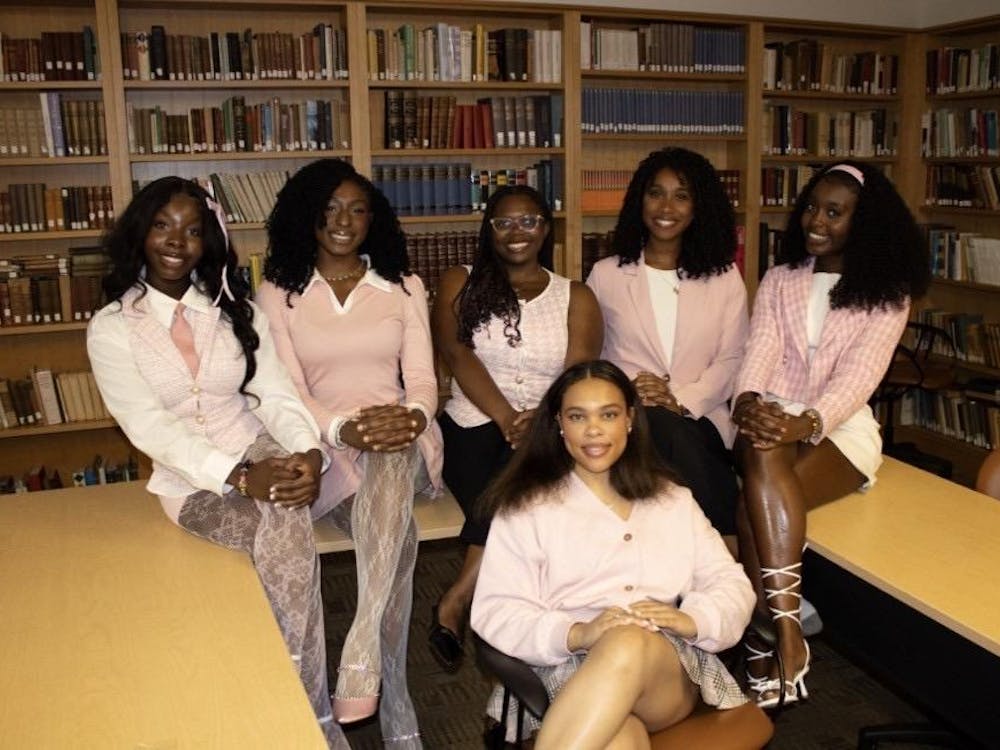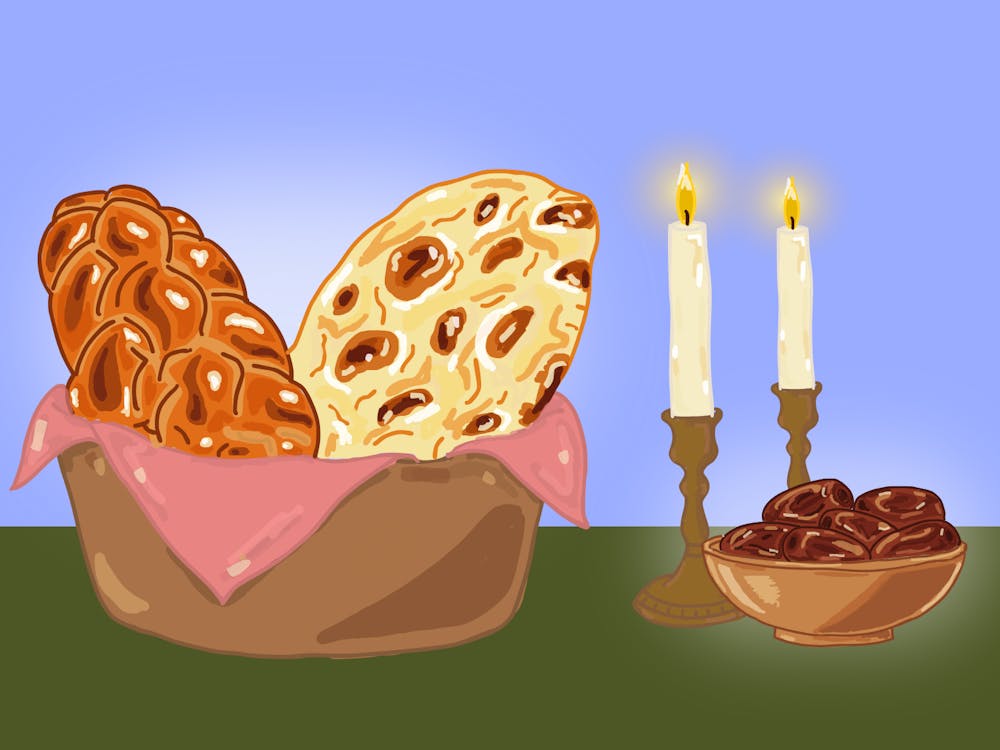It took a year for famed investigative journalist Bob Woodward to craft a 21-page memo detail-ing behind-the-scenes information on the Bush administration's decision to go to war with Iraq. The memo, intended for the president, outlined information Woodward obtained through preliminary interviews for his new book, "Plan of Attack." But, as Woodward noted in a University Programs Council-sponsored speech in Old Cabell Hall Thursday night, his colleagues at The Washington Post weren't convinced the memo would help him get what he really wanted: time alone with the president.
"'He's never read a 21-page memo,' they told me," Woodward said.
Fortunately for Woodward, who now serves as assistant managing editor of The Washington Post, President Bush did his reading this time. Perhaps because Bush felt the need to set the record straight, Woodward was granted two interviews with the president that totaled over 300 questions and three and a half hours -- breaking the record for a journalist's personal interview time with any sitting president.
Unlike his son, President George H.W. Bush had kept Woodward 1,000 yards away at all times by way of an official order that Woodward noted was founded on residual bitterness from Watergate. Woodward said the elder Bush, a former Nixon cabinet member, once berated him for an investigation the 41st president said was "all blown out of proportion."
But last December, not more than a few yards from the younger Bush, Woodward fired away.
"He got very agitated and jumped in his chair a lot," Woodward said.
Although he's traditionally been no stranger to asking hard-hitting questions, Woodward admitted that he did preface a question concerning weapons of mass destruction with, "One of my colleagues at The Washington Post has a tough question for you ..."
Even when demonstrating hesitation and frustration, however, Bush was far more thorough and articulate than he is generally credited as being, Woodward said. Woodward added that there are "more dimensions to [Bush] than people realize."
He also noted that in the decision to go to war, the president demonstrated what Woodward considers the most important presidential trait -- courage.
Regardless of compliments he made in regards to the president's character, and the predominant media perception that Woodward is liberal, the Watergate celebrity maintained his neutrality.
"I'm neither conservative or liberal," Woodward said. "If I had to vote I guess I could ... but it's not my job."
That 'job' is one he delegates to his 8-year-old daughter when they head to the polls together in the strongly democratic Washington, D.C.
"I take my 8-year-old in [the voting booth] and she gets to pick," he said. "She feels very empowered by it and it helps me stay covered."
Woodward's neutrality and insistence on reporting the facts has propelled "Plan of Attack" onto the recommended book lists of both the Bush-Cheney and Kerry-Edwards campaigns.
This journalistic sense of duty is also inherent in Woodward's cool refusal to reveal the identity of Deep Throat, the primary, anonymous source of information during his investigation of the Watergate scandal. The topic of Deep Throat's identity arose with the first inquiry of last Thursday night's question and answer session.
"Nice try ... but Deep Throat is not going to be identified tonight," Woodward said. "It's a fabulous human story that will be told when he dies."
Woodward then explained that knowledge of the Deep Throat mystery is analogous to seeing the solution in a puzzle, in that "if you don't know the answer (like you), it's not obvious. But if you do know the answer (like me), it is obvious."
Woodward acknowledged the frequent disappointment he experienced while investigating the highly classified Watergate break-in, despite Deep Throat's help.
"There was frustration, slammed doors, uncertainties, denials," he said. "There was no sense of having power, but a sense of not having power."
Meeting with uncooperative and staunchly anonymous sources was a typical part of the investigatory process, but Woodward and sidekick Carl Bernstein also found themselves dealing with a constant danger in their quest to shed light on the corruption in the executive branch.
"The stakes were so high," he said. "It really spooked me when Deep Throat said lives were in danger."
Asked if he ever forgot to eat, sleep or brush his teeth during those hectic months, Woodward recalled his running out of soap at home and using shampoo as a substitute for a week until his editor bought him a bar of soap.
Ironically, the president whose career ended as a result of Woodward and Bernstein's reporting was the same one for whom Woodward had cast his vote in 1968, with hopes that Republican candidate Richard Nixon would end the Vietnam War. Woodward still concedes that Nixon was an "incredibly brainy man," but pointed out that shocking details of Nixon's personality can be found in the Watergate tapes that have now been publicly released.
"What is chilling is the smallness of Nixon -- using the presidency for personal revenge," he said. "There's this kind of sick self-focus."
Woodward said he'll never forget the pitiful words of President Nixon shortly before his resignation in 1974: "Always remember, others may hate you, but those who hate you don't win unless you hate them, and then you destroy yourself."
One member of the audience on Thursday questioned Woodward's influence on investigative journalism. Woodward expressed concern that the powerful brand of investigative journalism that destroyed Nixon is now misused by modern journalists.
Woodward also noted that he sees a sort of bloodthirstiness in journalism today that was not as prevalent in pre-Nixon years.
"There is that impulse of go for the throat, get the scalp," Woodward said. "There are more cowboys and cowgirls out there ... into that business of trying to predict and judge."
Woodward's cowboy analogy might apply to CBS News anchor Dan Rather, whose damaged reputation is due to his recent reporting on false documents related to President Bush's service in the National Guard. Woodward said Rather's greatest error was "getting defensive about [the mistake]" instead of coming forth with the truth.
Woodward said his biggest worry about the modern media is that journalists "are in such a hurry" to get information out, at the expense of accuracy.
With such controversial claims made through the media in this presidential election race, many have been quick to classify it as a hostile battle for the country's highest office, but Woodward insists that this is "not a hateful campaign."
So who will come out on top on Nov. 2? Woodward had a bold prediction.
"Bush will win by a little or a lot. Kerry will win by a little or a lot. Or ... it will be a tie"






